Current Affairs 12 October 2023.
Today’s News.
UN Security Council reform is a song in a loopy.
Current Affairs 12 October 2023 | Relevant for GS Paper-2, Bilateral, regional and global groupings and agreements Involving India and /or affecting India’s interest.
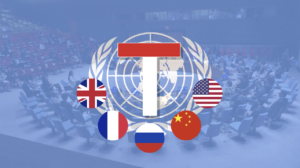
- More than three decades after the debate first started over fundamental reforms at the United Nations (UN), the issue appears to have resurfaced at the ongoing General Assembly session of the world body. President Recep Tayyip Erdoğan of Türkiye was blunt: “The Security Council has ceased to be the guarantor of world security and has become a battleground for the political strategies of only five countries.”
- It could not have been put more bluntly, but we have heard this song before. Politically, it is untenable that the five permanent members (China, France, Russia, the United Kingdom, and the United States) enjoy their position, and the privilege of a veto over any Council resolution or decision, merely by virtue of having won a war 76 years ago. In the case of China, the word ‘won’ needs to be placed within inverted commas.
- The problem of reforming the Security Council is akin to a malady in which a number of doctors gather around a patient; they all agree on the diagnosis but they cannot agree on the prescription.
- Today, there are 193 member states of the UN, and only 15 members of the Council — fewer than 8%. The one change ever made to the original Charter was in 1965 when the Security Council was expanded from 11 members to 15 by adding four more elected non permanent members.
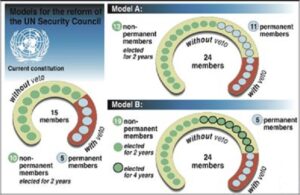
- In terms of simple considerations of equity, this situation is unjust: for starters, to those countries whose financial contributions to the UN outweigh those of four of the five permanent members — Japan and Germany have for decades been the second and third largest contributors to the UN budget, while still being referred to as ‘enemy states’ in the United Nations Charter (since the UN was set up by the victorious Allies of the Second World War).
- So, the Security Council is clearly ripe for reform to bring it into the second quarter of the 21st century. But for every state that feels it deserves a place on the Security Council, and especially the handful of countries which believe their status in the world ought to be recognised as being in no way inferior to at least three of the existing permanent members, there are several who know they will not benefit from any reform.
- The small countries that make up more than half the UN’s membership accept that reality and are content to compete occasionally for a two year non permanent seat on the Council.
- Part of the problem is that the bar to amending the UN Charter has been set rather high. Any amendment requires a two-thirds majority of the overall membership, in other words 129 of the 193 states in the General Assembly, and would further have to be ratified by two-thirds of the member states.
- That has proved to be a tall order indeed. India’s credentials may seem obvious to us, but China is none too keen on diluting its status as the only Asian permanent member; Pakistan, which fancies itself as India’s strategic rival on the subcontinent, is unalterably opposed; and to some extent Indonesia seems to feel diminished by the prospect of an Indian seat.
- While the debate keeps going round in circles for decades, gridlock continues in the Security Council, as most vividly illustrated recently over the Ukraine conflict, when a Permanent Member of the Security Council invaded a sovereign UN member state and the Council proved powerless to respond.
- Russia’s increasing resort to the veto has blocked resolutions on Ukraine, Mali, Syria and North Korea. Similar obstructionism by the West has affected proposals to reform the financial institutions established at Bretton Woods in 1944, the World Bank and the International Monetary Fund.
- And yet this is the only global system we have got that brings all countries together on a common platform. Can we afford to let it fade into ineffectiveness and irrelevance?
Refresh Basics
UNSC:
About:
-
- The Security Council was established by the UN Charter in 1945. It is one of the six principal organs of the United Nations.
- The other 5 organs of the United Nations are—the General Assembly (UNGA), the Trusteeship Council, the Economic and Social Council, the International Court of Justice, and the Secretariat.
- Its primary responsibility is to work to maintain international peace and security.
- The council is headquartered at New York.
Members:
-
- The council has 15 members: the five permanent members and ten non-permanent members elected for two-year terms.
- The five permanent members are the United States, the Russian Federation, France, China and the United Kingdom.
- India, for the eighth time, has entered the UNSC as a non-permanent member last year (2021) and will stay on the council for two years i.e 2021-22.
- Each year, the General Assembly elects five non-permanent members (out of ten in total) for a two-year term. The ten non-permanent seats are distributed on a regional basis.
- The council’s presidency is a capacity that rotates every month among its 15 members.
Voting Powers:
-
- Each member of the Security Council has one vote. Decisions of the Security Council on matters are made by an affirmative vote of nine members including the concurring votes of the permanent members. A “No” vote from one of the five permanent members blocks the passage of the resolution.
- Any member of the United Nations which is not a member of the Security Council may participate, without vote, in the discussion of any question brought before the Security Council whenever the latter considers that the interests of that member are specially affected.
India in the UNSC:
-
- India took active part in the formulation of the Universal Declaration of Human Rights (UDHR) in 1947-48 and raised its voice passionately against racial discrimination in South Africa.
- India has played its part in formulating decisions on several issues such as admitting former colonies to the UN, addressing deadly conflicts in the Middle East and maintaining peace in Africa.
- It has contributed extensively to the UN, particularly for the maintenance of international peace and security.
- India has taken part in 43 Peacekeeping missions with a total contribution exceeding 160,000 troops and a significant number of police personnel.
- India’s population, territorial size, Gross Domestic Product (GDP), economic potential, civilisation legacy, cultural diversity, political system and past and ongoing contributions to UN activities make India’s demand for a permanent seat in the UNSC completely rational.
Issues with UNSC:
-
- Absence of Records and Texts of Meetings.
- The usual UN rules don’t apply to the UNSC deliberations and no records are kept of its meetings.
- Additionally, there is no “text” of the meeting to discuss, amend or object.
Power play in UNSC:
-
- The veto powers that the UNSC’s five permanent members enjoy is an anachronism in this age.
- The UNSC in its current form has become a constraint in understanding the international changes and dynamics in the area of human security and peace.
Divisions Among the P5:
-
- There is a deep polarisation within the UN’s membership, so decisions are either not taken, or not heeded.
- Frequent divisions within the UNSC P-5 end up blocking key decisions.
- Example: With the coronavirus pandemic emergence, the UN, the UNSC, and World Health Organisation failed to play an effective role in helping nations deal with the spread.
An Underrepresentation Organisation:
-
- The absence in the UNSC of the globally important countries – India, Germany, Brazil and South Africa – is a matter of concern.
3.21 lakh appeals pending with Information Commissions: report.
Current Affairs 12 October 2023 | Relevant for GS paper-2, Statutory , regulatory and quasi –judicial bodies.
- More than three lakh appeals and complaints are pending in 27 State Information Commissions across the country and the backlog has been steadily increasing, according to a new report.
- Of the 3,21,537 pending appeals, the maximum number was reported in Maharashtra (1,15,524) followed by Karnataka (41,047).
- The ‘Report Card on the Performance of Information Commissions in India, 202223’ said that the 2019 assessment had found that as of March 31 that year, a total of 2,18,347 appeals/ complaints were pending in the 26 Information Commissions from which data was obtained, which climbed to 2,86,325 as of June 30, 2021 and then crossed three lakh as of June 30, 2022.
- Four Information Commissions — Jharkhand, Telangana, Mizoram and Tripura — are defunct as no new Information Commissioners were appointed upon incumbents demitting office. Six Information Commissions are currently headless — the Central Information Commission, and the State Information Commissions of Manipur, Chhattisgarh, Maharashtra, Bihar, and Punjab.
- The report has been compiled based on the performance of Information Commissions across the country, and on information accessed under the Right to Information (RTI) Act by the Satark Nagrik Sangathan (SNS), a cititzens’ group working to promote transparency and accountability in governance.
Refresh Basics
Central Information Commission (CIC):
- Establishment: The CIC was established by the Central Government in 2005, under the provisions of the Right to Information Act (2005). It is not a constitutional body.
- Members: It consists of a Chief Information Commissioner and not more than ten Information Commissioners.
- Appointment: They are appointed by the President on the recommendation of a committee consisting of the Prime Minister as Chairperson, the Leader of Opposition in the Lok Sabha and a Union Cabinet Minister nominated by the Prime Minister.
- Jurisdiction: The jurisdiction of the Commission extends over all Central Public Authorities.
- Tenure: The Chief Information Commissioner and an Information Commissioner shall hold office for such term as prescribed by the Central Government or until they attain the age of 65 years, whichever is earlier.
- They are not eligible for reappointment.
Power and Functions of CIC:
- To receive and inquire into a complaint from any person regarding information requested under RTI, 2005.
- It can order an inquiry into any matter if there are reasonable grounds (suo-moto power).
- While inquiring, the Commission has the powers of a civil court in respect of summoning, requiring documents etc.
State Information Commission:
- It is constituted by the State Government.
- It has one State Chief Information Commissioner (SCIC) and not more than 10 State Information Commissioners (SIC) to be appointed by the Governor on the recommendation of the Appointments Committee headed by the Chief Minister.
Right to Information Act:
- Genesis of RTI law started in 1986, through judgement of Supreme Court in Mr. Kulwal v/s Jaipur Municipal Corporation case, in which it directed that freedom of speech and expression provided under Article 19 of the Constitution clearly implies Right to Information, as without information the freedom of speech and expression cannot be fully used by the citizens
- It has been implemented in order to see that the Indian citizens are enabled to exercise their rights to ask some pertinent questions to the Government and different public utility service providers in a practical way.
- The RTI Act replaced the Freedom of Information Act 2002.
- The objective of this act was to help the citizens avail of quicker services from the government agencies since the act enables them to ask questions like why a particular application or an official proceeding gets delayed.
- Mainly the act aims at achieving a corruption-free India.
Information that can be sought:
- Any Indian citizen is free to seek answers from a Government Authority like applying for a delayed IT refund, driving license or passport, or details of a repair or infrastructure project completed or going on.
- Information sought can also be related to the funds allotted under the different kinds of relief funds in the country.
- The act enables students to get copies of answer sheets from the universities under this act.
GI tag for Arunachal Yak Churpi, Khaw Tai (Khamti rice), and Tangsa textile.
Current Affairs 12 October 2023 | Relevant for Prelims.
Arunachal Pradesh has recently received the Geographical Indication (GI) tag for Arunachal Yak Churpi, Khaw Tai (Khamti rice), and Tangsa textile.
What is special about these products
Arunachal Yak Churpi:
- Origin: Arunachal Yak Churpi is derived from the milk of the Arunachali yak, a rare breed found primarily in the West Kameng and Tawang districts of Arunachal Pradesh.
- Tribal Yak Pastoralists: This milk is obtained from yaks reared by Brokpas, a tribal community known for their expertise in yak husbandry.
- These pastoralists practice seasonal migration, taking their yaks to higher altitudes during summers and descending to mid-altitude mountainous regions in winters, as yaks cannot survive at lower altitudes during summer.
- Health Benefits and Usage: Churpi is rich in proteins and serves as a vital source of nutrition in the vegetation-scarce, cold, and hilly mountainous regions of Arunachal Pradesh.
Khaw Tai (Khamti Rice):
Khaw Tai, a chewy sticky rice variety, hails from the Namsai region and is cultivated by traditional Khampti tribal farmers.
Tangsa Textile:
- The Tangsa Textile products crafted by the Tangsa tribe of Changlang district are renowned for their exotic designs and vibrant colours.
- This traditional craftsmanship reflects the cultural richness of the region.
Tele MANAS Seva.
Current Affairs 12 October 2023 | Relevant for Prelims, Government schemes.

- On World Mental Health Day, the Ministry of Health and Family Welfare highlighted the success of Tele Mental Health Assistance and Networking across States (Tele MANAS) Seva.
- Tele-MANAS Seva is a mental health counselling service launched on World Mental Health Day 2022.
- The aim of Tele-MANAS is to provide universal access to equitable, accessible, affordable and quality mental health care through 24X7 tele-mental health services as a digital component of the National Mental Health Programme (NMHP) across all Indian States and UTs with assured linkages.
- The Tele MANAS helpline offers toll-free access with audio calling and an auto-call back system. Trained counselors provide care, referring to specialists when needed, including audio and video options.
- For urgent in-person care, referrals to health centers are arranged via e Sanjeevani, from Health and Wellness Centres to tertiary care centers.
- Tele-MANAS has counseled more than 3, 50,000 people till 11th October 2023 and more than 1,000 calls are being received on this helpline every day.
The Optical Phenomenon of Rainbows.
Current Affairs 12 October 2023 Relevant for Prelims, Science and Technology.

- Rainbows, a meteorological marvel gracing the sky with their radiant hues post-rainfall, owe their existence to the intricacies of light refraction and reflection. After a substantial downpour, these optical phenomena can extend across the horizon, appearing as though they touch the Earth’s surface.
- The underlying cause can be attributed to the bending and separation of sunlight’s rays as they interact with raindrops.
- Each raindrop essentially acts as a miniature prism, refracting and dispersing light into its constituent colors.
- The angles at which these colors reach an observer’s eye remain constant.
- The rainbow’s location in the sky is determined by the sun’s height.
- Raindrops, oriented opposite to the sun at specific angles, can create a full circle, but from ground level, we see an arc due to the horizon.
- But, under special conditions like a setting sun, observers from high vantage points, such as mountain tops or hot-air balloons, can experience the full circular display of this optical marvel.
Noble Prizes.
Current Affairs 12 October 2023 Relevant for Prelims.
Physics Nobel Prize 2023:
- The Nobel Prize in Physics has been awarded to three scientists — Pierre Agostini of The Ohio State University in the US; Ferenc Krausz of the Max Planck Institute of Quantum Optics and Ludwig Maximilian University of Munich in Germany; and Anne L’Huillier of Lund University — “for experimental methods that generate attosecond pulses of light for the study of electron dynamics in matter.”
- Last year, three scientists — Alain Aspect, John F Clauser and Anton Zeilinger — shared the Nobel Prize in Physics for their work on quantum information science.
Chemistry Nobel Prize 2023:
- The 2023 Nobel Prize in Chemistry has been awarded to Moungi G. Bawendi, Louis E. Brus and Alexei I. Ekimov “for the discovery and synthesis of quantum dots.”
- The 2023 Nobel Prize in Chemistry rewards the discovery and development of quantum dots, nanoparticles so tiny that their size determines their properties. These particles have unique properties and now spread their light from television screens and LED lamps. They catalyse chemical reactions and their clear light can illuminate tumour tissue for a surgeon.
- Researchers have primarily utilised quantum dots to create coloured light. They believe that in the future quantum dots can contribute to flexible electronics, miniscule sensors, slimmer solar cells and perhaps encrypted quantum communication.
- Thanks to their work, nanoparticles with desired deviant behaviour have become an integral part of a variety of modern appliances, including television, computer screens, and LED lamps. There are a wide range of applications in biochemistry and medicine as well.
- The 2022 Nobel Prize in chemistry was awarded in equal parts to Carolyn R Bertozzi, Morten Meldal and K Barry Sharpless for developing way of “snapping molecules together.”
Literature Nobel Prize 2023:
- The Nobel Prize for Literature 2023 has been awarded to Norwegian author Jon Olav Fosse, for his “innovative plays and prose which give voice to the unsayable” , the Nobel Academy said on Thursday (October 5).
Each year, since 1901, the Nobel Prize has been announced for achievements in the sciences, literature and peace. (Source: X/Nobel Prize)
- “Jon Fosse presents everyday situations that are instantly recognisable in our own lives. His radical reduction of language and dramatic action expresses the most powerful human emotions of anxiety and powerlessness in the simplest terms. It is through laureate Jon Fosse’s ability to evoke man’s loss of orientation, and how this paradoxically can provide access to a deeper experience close to divinity, that he has come to be regarded as a major innovator in contemporary theatre, the Nobel Prize’s official handle posted on X.
- Last year the prize went to French author Annie Ernaux (2022).
Who is Jon Fosse?
- Fosse writes in Norwegian Nynorsk, the least common of the two official versions of Norwegian. After winning the Nobel, he said he regarded the award as a recognition of this language and the movement promoting it, and that he ultimately owed the prize to the language itself, reported Reuters.
- His “A New Name: Septology VI-VII”, about two painters, both named Asle but with different lives and demons and preoccupations, was a finalist for the International Booker Prize last year.
- Other notable works by Fosse include I Am the Wind, Melancholy, Boathouse, and The Dead Dogs.
- His writing style, characterised by simple, minimal, searing dialogue, is considered similar to Samuel Beckett and Harold Pinter, both of whom have won the Nobel earlier.
- His themes explore the absurdity, the futility and yet the power of the human condition; everyday confusions and irresolutions; and the difficulty to form actual connections, despite — and sometimes because of — conversation.
- While Fosse has been celebrated in Europe for a long time, he is not that popular in the United Kingdom or in the UK, and that has impacted his visibility in the rest of the English-speaking world, like in India.
- It has been said that the UK and the US find his themes difficult to relate to, and his plays difficult to connect with. In 2014, in a review of his ‘I Am the Wind’, about two men stranded on a boat, The New York Times wrote, “…you can understand why his work might not appeal to the Anglo-Saxon sensibility, which has never been celebrated for its embrace of ambiguity. And red lights are sure to flash in the minds of certain theatergoers when they hear that the characters in “I Am the Wind” are identified as “the One and the Other.”
- In recent years, however, his popularity has increased in these geographies too.
Nobel Peace Prize 2023:
- Jailed Iranian activist Narges Mohammadi was awarded the Nobel Peace Prize for her fight against the oppression of women in Iran and promoting human rights and freedom for all.
- Authorities arrested Mohammadi in November after she attended a memorial for a victim of violent 2019 protests. Before being jailed, Mohammadi was vice president of the banned Defenders of Human Rights Centre in Iran. Mohammadi has been close to Iranian Nobel Peace Prize laureate Shirin Ebadi, who founded the centre.
- Mohammadi is currently serving multiple sentences in Tehran’s Evin Prison amounting to about 12 years imprisonment, according to the Front Line Defenders rights organisation, one of the many periods she has been detained behind bars. Charges include spreading propaganda against the state.
- Mohammadi is the 19th woman to win the 122-year-old prize and the first one since Maria Ressa of the Philippines won the award in 2021 jointly with Russia’s Dmitry Muratov.
- Human rights groups from Russia and Ukraine — Memorial and the Center for Civil Liberties — won the 2022 Nobel Peace Prize, along with the jailed Belarusian advocate Ales Bialiatski.
Economics Nobel Prize 2023:
- The Nobel Memorial Prize in Economic Sciences, the final prize of this year’s Nobels season, was awarded to Claudia Goldin “for having advanced our understanding of women’s labour market outcomes.”
- Goldin is only the third woman to win the prize, which was announced by Hans Ellegren, secretary-general of the Royal Swedish Academy of Sciences, in Stockholm.
- In Goldin’s analysis, a woman’s role in the job market and the pay she receives aren’t influenced just by broad social and economic changes. They also are determined partly by her individual decisions about, for example, how much education to get.
- Last year’s winners were former Federal Reserve Chair Ben Bernanke, Douglas W. Diamond and Philip Dybvig for their research into bank failures that helped shape America’s aggressive response to the 2007-2008 financial crisis.
- Only two of the 92 economics laureates honoured have been women.
Related Blogs…
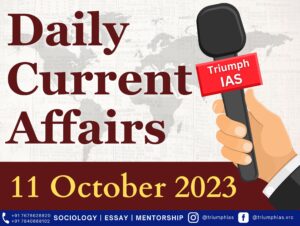 |
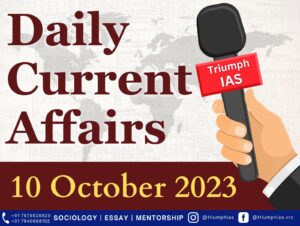 |
GS Related Practices Question…
To master these intricacies and fare well in the Sociology Optional Syllabus, aspiring sociologists might benefit from guidance by the Best Sociology Optional Teacher and participation in the Best Sociology Optional Coaching. These avenues provide comprehensive assistance, ensuring a solid understanding of sociology’s diverse methodologies and techniques.
META TAGS:
Current affairs 12 October 2023, Current affairs 11 October 2023, Today news, Today news GS, Today news upsc, Today news and views, Today news 2023, Today news Current affairs September 2023, Current affairs news, Current affairs book pdf, Current affairs best blog, Current affairs for UPSC, Current affairs 2023, Current affairs contact, Current affairs book, Current affairs program meaning

Choose The Best Sociology Optional Teacher for IAS Preparation?
At the beginning of the journey for Civil Services Examination preparation, many students face a pivotal decision – selecting their optional subject. Questions such as “which optional subject is the best?” and “which optional subject is the most scoring?” frequently come to mind. Choosing the right optional subject, like choosing the best sociology optional teacher, is a subjective yet vital step that requires a thoughtful decision based on facts. A misstep in this crucial decision can indeed prove disastrous.
Ever since the exam pattern was revamped in 2013, the UPSC has eliminated the need for a second optional subject. Now, candidates have to choose only one optional subject for the UPSC Mains, which has two papers of 250 marks each. One of the compelling choices for many has been the sociology optional. However, it’s strongly advised to decide on your optional subject for mains well ahead of time to get sufficient time to complete the syllabus. After all, most students score similarly in General Studies Papers; it’s the score in the optional subject & essay that contributes significantly to the final selection.
“A sound strategy does not rely solely on the popular
Opinion of toppers or famous YouTubers cum teachers.”
It requires understanding one’s ability, interest, and the relevance of the subject, not just for the exam but also for life in general. Hence, when selecting the best sociology teacher, one must consider the usefulness of sociology optional coaching in General Studies, Essay, and Personality Test.
The choice of the optional subject should be based on objective criteria, such as the nature, scope, and size of the syllabus, uniformity and stability in the question pattern, relevance of the syllabic content in daily life in society, and the availability of study material and guidance. For example, choosing the best sociology optional coaching can ensure access to top-quality study materials and experienced teachers. Always remember, the approach of the UPSC optional subject differs from your academic studies of subjects. Therefore, before settling for sociology optional, you need to analyze the syllabus, previous years’ pattern, subject requirements (be it ideal, visionary, numerical, conceptual theoretical), and your comfort level with the subject.
This decision marks a critical point in your UPSC – CSE journey, potentially determining your success in a career in IAS/Civil Services. Therefore, it’s crucial to choose wisely, whether it’s the optional subject or the best sociology optional teacher. Always base your decision on accurate facts, and never let your emotional biases guide your choices. After all, the search for the best sociology optional coaching is about finding the perfect fit for your unique academic needs and aspirations.
To master these intricacies and fare well in the Sociology Optional Syllabus, aspiring sociologists might benefit from guidance by the Best Sociology Optional Teacher and participation in the Best Sociology Optional Coaching. These avenues provide comprehensive assistance, ensuring a solid understanding of sociology’s diverse methodologies and techniques. Sociology, Social theory, Best Sociology Optional Teacher, Best Sociology Optional Coaching, Sociology Optional Syllabus.
Best Sociology Optional Teacher, Sociology Syllabus, Sociology Optional, Sociology Optional Coaching, Best Sociology Optional Coaching, Best Sociology Teacher, Sociology Course, Sociology Teacher, Sociology Foundation, Sociology Foundation Course, Sociology Optional UPSC, Sociology for IAS,
Follow us :
🔎 https://www.instagram.com/triumphias
🔎https://www.youtube.com/c/TriumphIAS
🔎https://t.me/VikashRanjanSociology
Find More Blogs…
| Compare and contrast Karl Marx’s and Max weber’s | Karl Marx- Historical Materialism |
| Talcott Parsons : Social system | Scope of the subject and comparison with other social sciences |

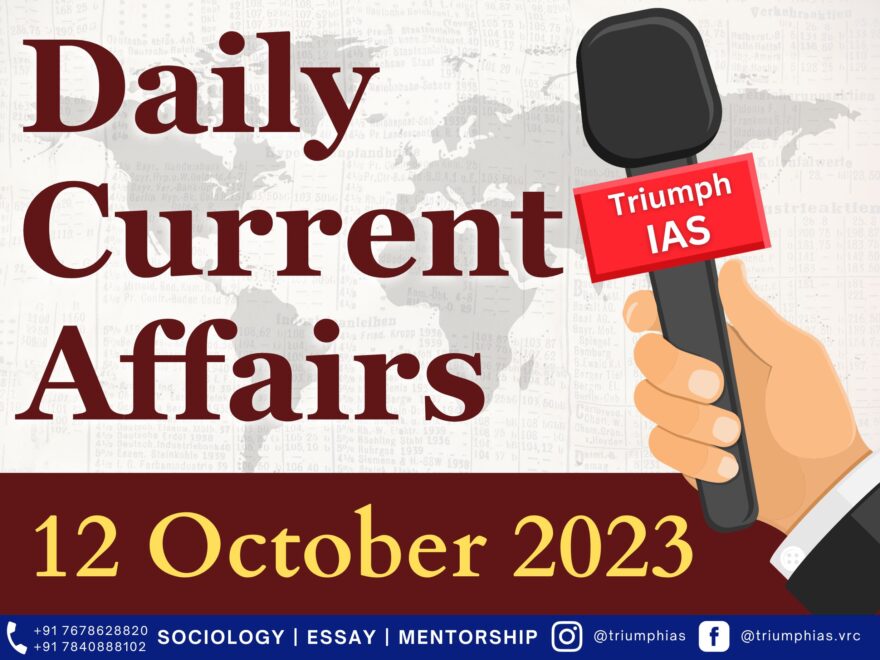

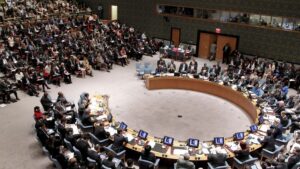
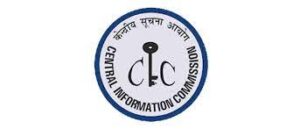
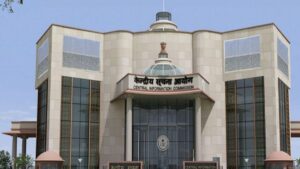
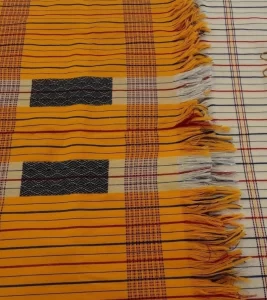
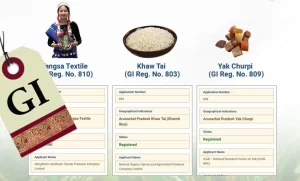

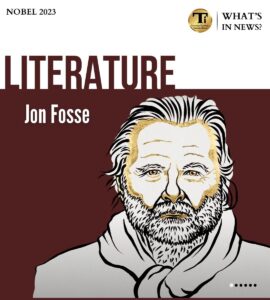

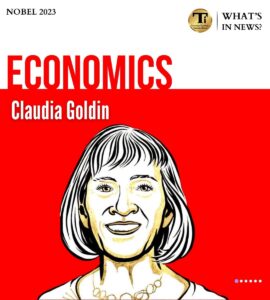

6 comments